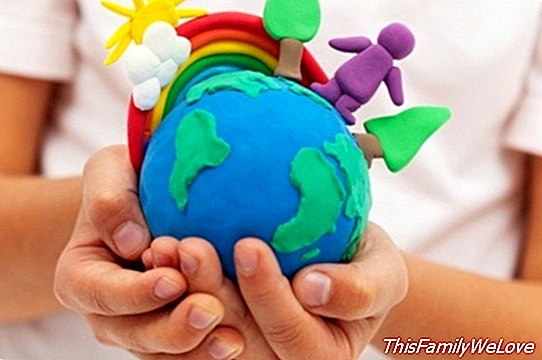Learn to be responsible


Between 6 and 12 years of the children, that is, during Primary Education, we have to encourage our children to learn to be responsible so that they think about every action, see the pros and cons, and making use of their freedom, choose what is best for you, not what you most want.
Fear of responsibility supposes an unfocused vision of freedom, not appreciating that commitments bind but at the same time protect. Learning to be responsible means assuming that commitments are good, they make us mature and they provide us with the joy of being consistent with our decisions, despite the effort they entail.
How to develop responsibility in children?
1. Enhancing your ability to self-direct, leaving them to act with autonomy and initiative when entrusting them with responsibilities.
2. Giving them answers frequently so they know how they are doing it, recognizing Manifest way the well done, in such a way that it generates their own satisfaction.
3. Helping them reflect and think, making them aware of the consequences of their actions. The objective of the education of the virtues is precisely that of integrating reason, will and feeling, in each performance of the person.
4. Talking to them since they are very small and making it easy for them to listen to them alone, with active listening. Family communication and dialogue is a key pillar that facilitates closeness to children with a climate of trust, where they leave their stories.
5. With specific tasks that exercise responsibility:
- Have orders that facilitate family unity and a positive climate, related to the smooth running of the house thanks to the effort of each one to fulfill it well and on time.
- Take care of your things, how to prepare your backpack, your clothes, your travel bag ...
- Order your room, including making a bed.
- Have and meet a study schedule, in a quiet environment that facilitates a job well done.
- Caring for a smaller baby or brother.
The obedient child is not always responsible
It is true that, often when children learn to be responsible, responsibility is confused with obedience, since executing orders does not mean being responsible. Sometimes, when it is obeyed it can be done to please the other person, avoid punishment, get a privilege, etc. Here, both motivation and decision are external to the child. However, the person acts responsibly when he decides what to do and motivates herself to do so, which implies a personal and free acceptance, with an internal motivation to carry out said order.
When children do not act because of imposed obligations, they do not experience success or failure as a consequence of the personal decision taken that leads them to commit themselves with responsibility. And both wrong and right are necessary to be responsible.
For example, when faced with any technological means -the ICT- we only see the risks and dangers of these and we prohibit children without reasoning why, or teach them to use them responsibly and freely, showing them both the advantages they have as well as their risks and dangers, Children may obey by obligation; but as they grow up and reach adolescence, they will not understand our prohibition towards ICT, they will be curious and in one way or another (when they are alone at home, when they go to a friend, a classmate who takes a mobile phone intelligent a series down the Internet ...) will end up seeing and / or using them out of natural curiosity, without knowing our criteria and letting themselves be carried away by that of friends.
Fatima Footwear
Advisor: María Cervera Gil. Psychopedagogy and Family Counselor




